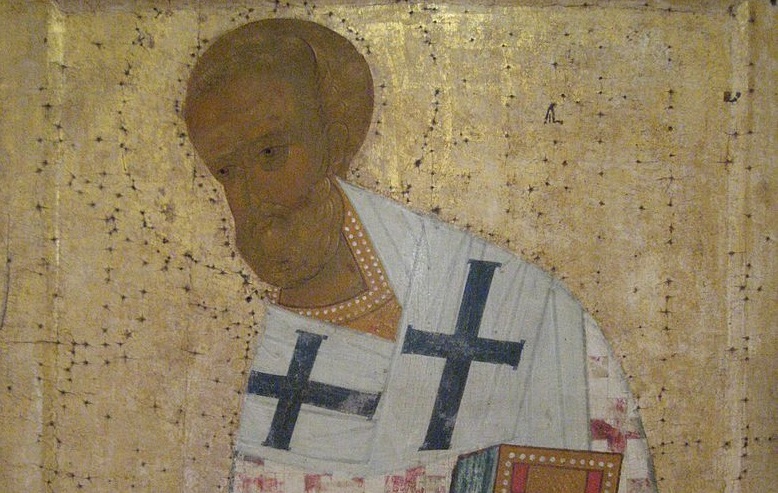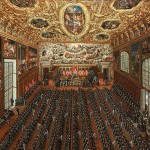
What John Milbank, author of Theology and Social Theory, calls the Eastward movement of Western theology in the video below is mostly a marker of where Western theology stands with regard to its own traditions.
Of these traditions (in the plural) many continue an unbroken engagement with the Greek Fathers. After all, quite a few of those theologians are Doctors of the (Western) Church. This is to be contrasted with a pure and simple movement toward manifesting Eastern Orthodox forms of piety, although there’s plenty of that (as sales of the Philokalia attest), and much of it is a very good thing indeed.
The Eastward movement, as Milbank understands it, comes from trends in Western theology–encouraged by the great Council Fathers such as Henri de Lubac (about whom Milbank wrote about in The Suspended Middle)–that are a return to the organic, or what Michael Martin calls, the sophiological dimension of theology. In one sense the Eastern Orthodox tradition was fortunate to mostly skip over the 18th century philosophical movement known as the Enlightenment, at least in the domain of theology. This prevented it from getting mired down in dualisms that ripped apart the Western Church and the West’s very way of thinking and approaching reality.
This of course, would be too sunny a view of Orthodoxy without going into the necessary qualifications. Here I imagine Catholic Enlightenment expert Ulrich Lehner shaking a fist at Milbank and I–because there is much to be gained by going through Enlightenment critiques, rather than around them (since that latter create its own sets of problems).
As Nietzsche said in the Twilight of the Idols, “Whatever doesn’t kill you immediately will come back kill you later.” No, wait, that was, “From life’s school of war: what does not kill me makes me stronger.”
Because of this post-Enlightenment split in the Western psyche our contemporaries usually think of theology, science, economics, and philosophy all inhabiting their little troughs and never sharing their gruel. There is almost no equal separation in Eastern Christian traditions. All of these disciplines are wrapped into one comprehensive way of life, because it makes little sense to separate the Creator from his creation.
We tend to think of theology and philosophy as two different things, but Patristic (even pre-Christian Greek) thinking did not see things this way. Theology was a philosophy and philosophy was a theology (with the notable, I think singular, exception of the Epicureans that only proves the general point). Or, as I put it elsewhere: Philosophy has permanent ties to theology.
There is an emerging body of Catholic theological writing on the Western drift back to Eastern holism. For example, there’s Artur Mrowczynski-Van Allen’s Between the Icon and the Idol and the essays he edited with Pawel Rojek collected in Apology of Culture: Religion and Culture in Russian Thought.
With all that in mind, take a look at Milbank’s lecture. It’s time well spent.
You might also want to take a look at my extended list on the topic of religion and world politics where Milbank’s Theology and Social Theory gets a mention.
Do drop some change in my hat through the PayPal button on the right side of my homepage, if you feel so inclined.
















